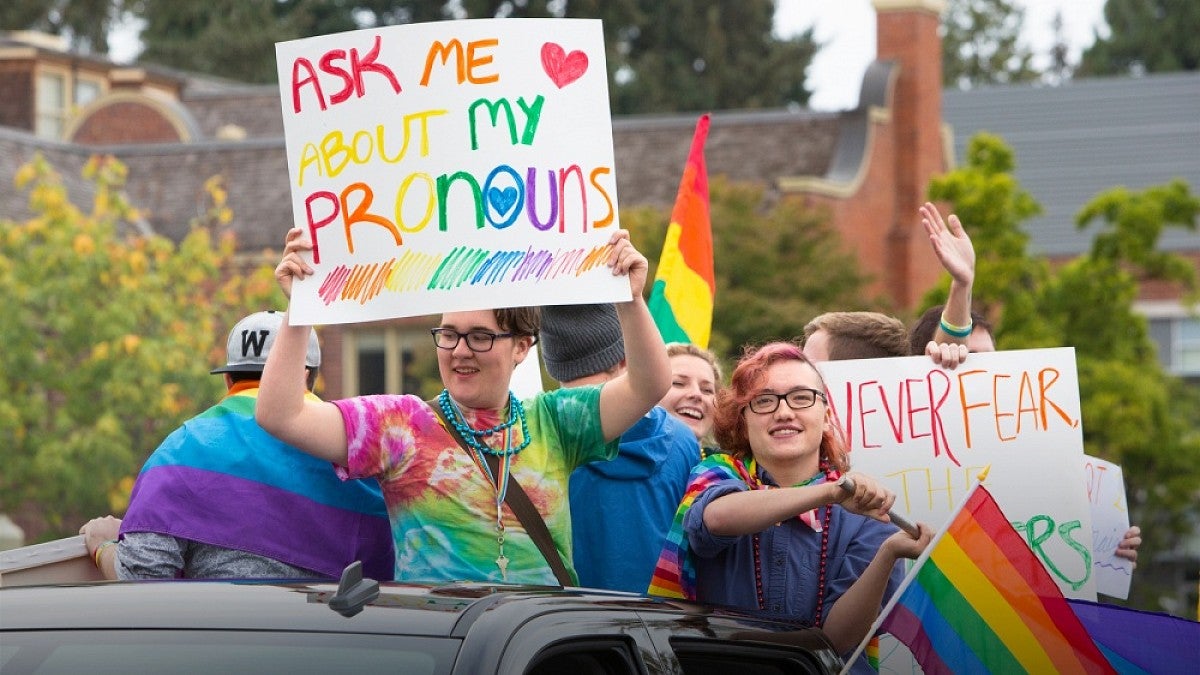The University of Oregon — already named one of the top 25 universities in the nation for LGBTQ students — has also been recognized as the most LGBTQ-friendly college in Oregon.
The ranking by BestColleges.com, in partnership with Campus Pride, highlights the top college or university in each state that has succeeded in creating an inclusive and educational environment for students who identify as LGBTQ.
“The University of Oregon has a reputation of being one of the most LGBTQ-friendly colleges in the country, and for good reason,” said Stephanie Snider, general manager at BestColleges.com. “The university offers a multitude of resources and initiatives that benefit queer and transgender students, including prospective student outreach, transition support, LGBTQ education and support services, and regular training on queer and transgender identity for staff and faculty.”
The UO was given five out of five stars by Campus Pride, based on categories that included institutional commitment, student life, housing and residence life, campus safety, health and counseling services, and retention and recruitment efforts.
The UO offers gender-inclusive housing options, including the Gender Equity Hall, which is also home to the LGBTQIA+ Scholars, an academic residential community.
“The Gender Equity Hall and the LGBTQIA+ Scholars provide living space open for all genders and fosters respect for LGBTQIA+ identities among residents,” said Haley Wilson, coordinator of Lesbian, Gay, Bisexual, Transgender Education and Support Services in the Office of the Dean of Students. “The Scholars engage in queer scholarship with a faculty director and take small seminar courses that bring in LGBTQIA+ faculty to discuss their research. Both of these communities create inclusive, safe, co-curricular and celebratory spaces for LGBTQIA+ UO students.”
The LGBTQA3 office in the Erb Memorial Union is another location where students can gather to eat lunch, play games or simply hang out. The office also connects students to resources that support them in their academics as well as their personal lives.
“It has been educational, mind-opening, rejuvenating and overall a great community to be a part of,” said Srushti, a fourth-year journalism and history major.
With the broader UO community in mind, the support services program offers Queer Ally Coalition training to faculty and staff, who can learn how to create services and classrooms that better engage, retain and foster success among all UO students, Wilson said. Those who complete the training can display a sticker to show their support for LGBTQIA+ students, making physical spaces inviting and inclusive.
The UO’s efforts to build an inclusive environment have had positive effects.
“I have never felt deep safety concerns here,” said Justice, a second-year English major, “and I’ve felt supported by the university.”
“From my conversations with students,” Wilson said, “there are many LGBTQIA+ individuals who choose to apply to the UO due to the ranking on Campus Pride Index, and learning of the LGBTQIA+ support programs offered here.”
Lilly, a third-year student majoring in classics and cinema studies, agrees.
“It has been really nice to have a community,” Lilly said, “and to know that the UO has support services for LGBT students.”


